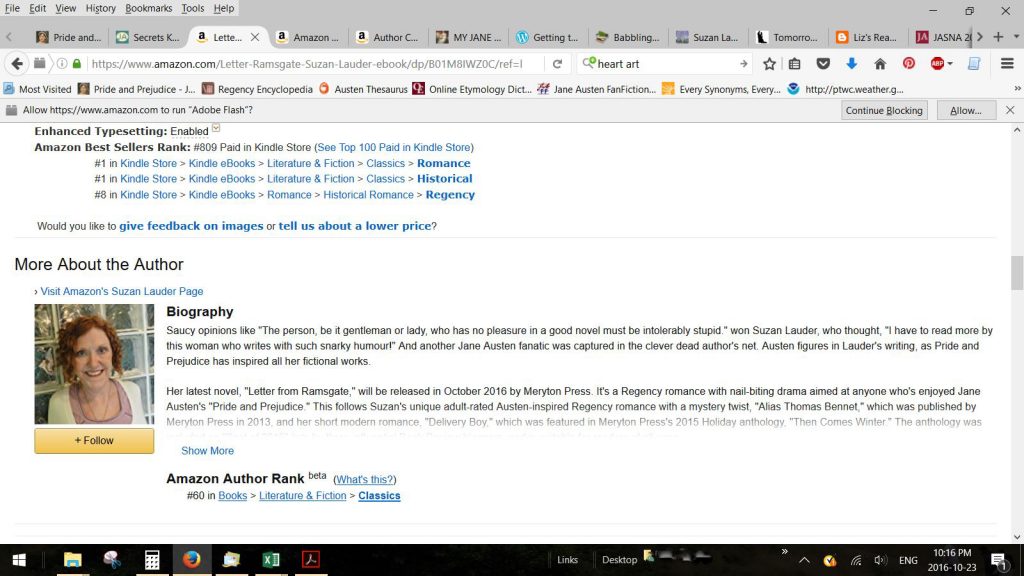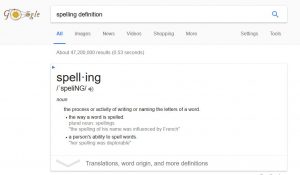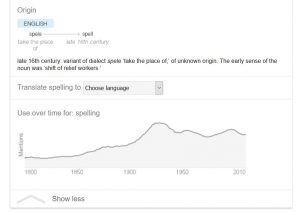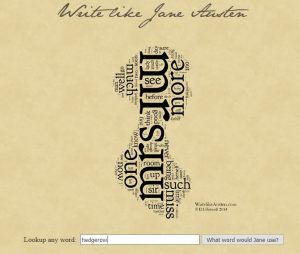 You wondered about the title, right? “But the spell checker does that! Not always? What makes for a smart author, and how does this apply to me?” We know from previous posts that smart authors self-edit their weakest areas to the best of their abilities and, after they’re comfortable they’ve done their best, hand it over to others for additional help.
You wondered about the title, right? “But the spell checker does that! Not always? What makes for a smart author, and how does this apply to me?” We know from previous posts that smart authors self-edit their weakest areas to the best of their abilities and, after they’re comfortable they’ve done their best, hand it over to others for additional help.
Welcome to Learning from My Mistakes, a blog series on what I learned when writing and editing my latest novel, Letter from Ramsgate. This is the fourth installment of the series, and the others were in September/October 2016 on self-editing and writer’s block. There was a gap in this series because I was busy marketing Letter from Ramsgate’s October 2016 release as well as an anniversary giveaway for Then Comes Winter, the perfect read or gift at this time of year.
 Hold on. I have to toot my own horn. Not only did Letter from Ramsgate break the top 1000 for all books in the Kindle store, topping out at #809, but it was #8 in the difficult category of Regency Romance (I was amazed at some long-time popular authors with hundreds of reviews with me in the top ten!), and TA-DAAA: a #1 bestseller in Literature and Fiction categories of Romance Classics and Historical Classics! Meryton Press doesn’t move books around to capitalize on categories that have few new books to ensure they get top billing, so those bestseller rankings are a bona fide point of pride for me! Thanks, readers!
Hold on. I have to toot my own horn. Not only did Letter from Ramsgate break the top 1000 for all books in the Kindle store, topping out at #809, but it was #8 in the difficult category of Regency Romance (I was amazed at some long-time popular authors with hundreds of reviews with me in the top ten!), and TA-DAAA: a #1 bestseller in Literature and Fiction categories of Romance Classics and Historical Classics! Meryton Press doesn’t move books around to capitalize on categories that have few new books to ensure they get top billing, so those bestseller rankings are a bona fide point of pride for me! Thanks, readers!
Now, back to the program:
Any author can learn many of the rules of spelling and punctuation themselves. I’m not saying you have to become perfect—look at my commas and you’ll see that although I aim for normal standards, I have some glitches to overcome. Sometimes I know the rule yet didn’t notice that the situation met the rule. Commas are one of the hardest areas, and at some point in this series, I may even try to share the conventions I’m confident about to help those to become closer to norm—learning from my mistakes! This post will be about common spelling mistakes I see as a reader, and later posts will cover punctuation and other areas.
Most spelling mistakes are homophones (two words that sound exactly the same but have very different spellings and meanings), homonyms (two words that sound similar but have very different spellings and meanings), or anachronisms (words spelled differently in the time period of the book, a separate post topic).
When aware of a homophone or homonym that you have difficulty with, try to think of a trick to remember the difference. Here are two examples:
- A bear might eat a pear. To bear something, whether in a literal or figurative sense, is pretty weighty stuff. That big old bear eating a pear is a heavyweight! So they are spelled in a similar way. “He ain’t heavy, he’s my brother,” says the bear. The load can be emotional, like the bear will tell Elizabeth Bennet to “Grin and bear it,” when she can’t bear to know Mr. Darcy is somewhere in the world thinking ill of her. Bare means exposed, like bare your soul, bare your teeth. In the expression “bare naked,” both words have “a” and “e” as vowels. Naked is pretty exposed! Voila: you won’t mix up bear and bare again!
- Insure is kind of like insurance, which is money you pay to become covered for something. Ensure is to take action to make sure a thing happens, like solving a problem, to enable. The word was not used a lot until the 1950’s, and assure was sometimes used in its place, but today is treated differently. Assure is to make a person confident. I like to think it’s to comfort them in knowing something will go well—think reassure.
The author must look up the definitions to create word reminder tricks. If you just assume you know—well, you’ve heard the quip about what happens when you assume. (ASS U ME= You make an ASS of U and ME!)
 Suzan Lauder’s “Learning from My Mistakes” Lesson #5: If in doubt on spelling, grammar, word usage, etymology, etc., look it up!
Suzan Lauder’s “Learning from My Mistakes” Lesson #5: If in doubt on spelling, grammar, word usage, etymology, etc., look it up!
Homophone.com has definitions when you hover over the words. Capital Community College has some helpful sentences for word pairs that are often confused.
In a novel I read earlier this year, I was baffled at the author’s approach: made-up spelling isn’t a reasonable alternative to looking up the word! As a reader, figuring out what the word was meant to be was a strange experience. The same problem happens if a word is used but the meaning doesn’t suit.
 The trouble is, every time a reader has to stop and figure out what the author means, they become disengaged from the story. As an author, that’s the last thing you want, because too many disengagements equal either frustration or boredom. Remember, that frustration and boredom carries into your Amazon reviews!
The trouble is, every time a reader has to stop and figure out what the author means, they become disengaged from the story. As an author, that’s the last thing you want, because too many disengagements equal either frustration or boredom. Remember, that frustration and boredom carries into your Amazon reviews!
Google has an automatic dictionary. Use it. If it shows a big arrow for more information, click it to find out what years the word was in common use. To better ensure your language isn’t anachronistic, there are The Online Etymology Dictionary and Write like Austen (formerly the Austen Thesaurus).
 Plural possessives can be tricky, and I’ve seen reviewers “correct” authors with the wrong punctuation! You should look it up, especially for words ending in “s.” But learn the difference in where the apostrophe goes for singular and basic plural possessive as a basis, and please, no apostrophe for a regular plural! One example of a place to learn is the previously mentioned Capital Community College. The site has many good tutorials, including Possessive Forms.
Plural possessives can be tricky, and I’ve seen reviewers “correct” authors with the wrong punctuation! You should look it up, especially for words ending in “s.” But learn the difference in where the apostrophe goes for singular and basic plural possessive as a basis, and please, no apostrophe for a regular plural! One example of a place to learn is the previously mentioned Capital Community College. The site has many good tutorials, including Possessive Forms.
Future posts will have more self-editing help, such as my problem areas with punctuation, lazy words, my personal common errors list, continuity, the HUGE topic of Point of View, and more.
Subscribe to my blog to make sure you don’t miss updates on any of these topics, and be sure to comment with your own tricks for difficult word pairs. Someday I’m going to I come up with a prize for past commenters on this series, and you want in, I’m sure of it!
Disclaimer: I’m not a writing expert. I’m just a writer who learned some stuff other writers might like to know instead of learning the hard way. My approach is pragmatic, and my posts are not professionally edited!
Save
Save
Save
